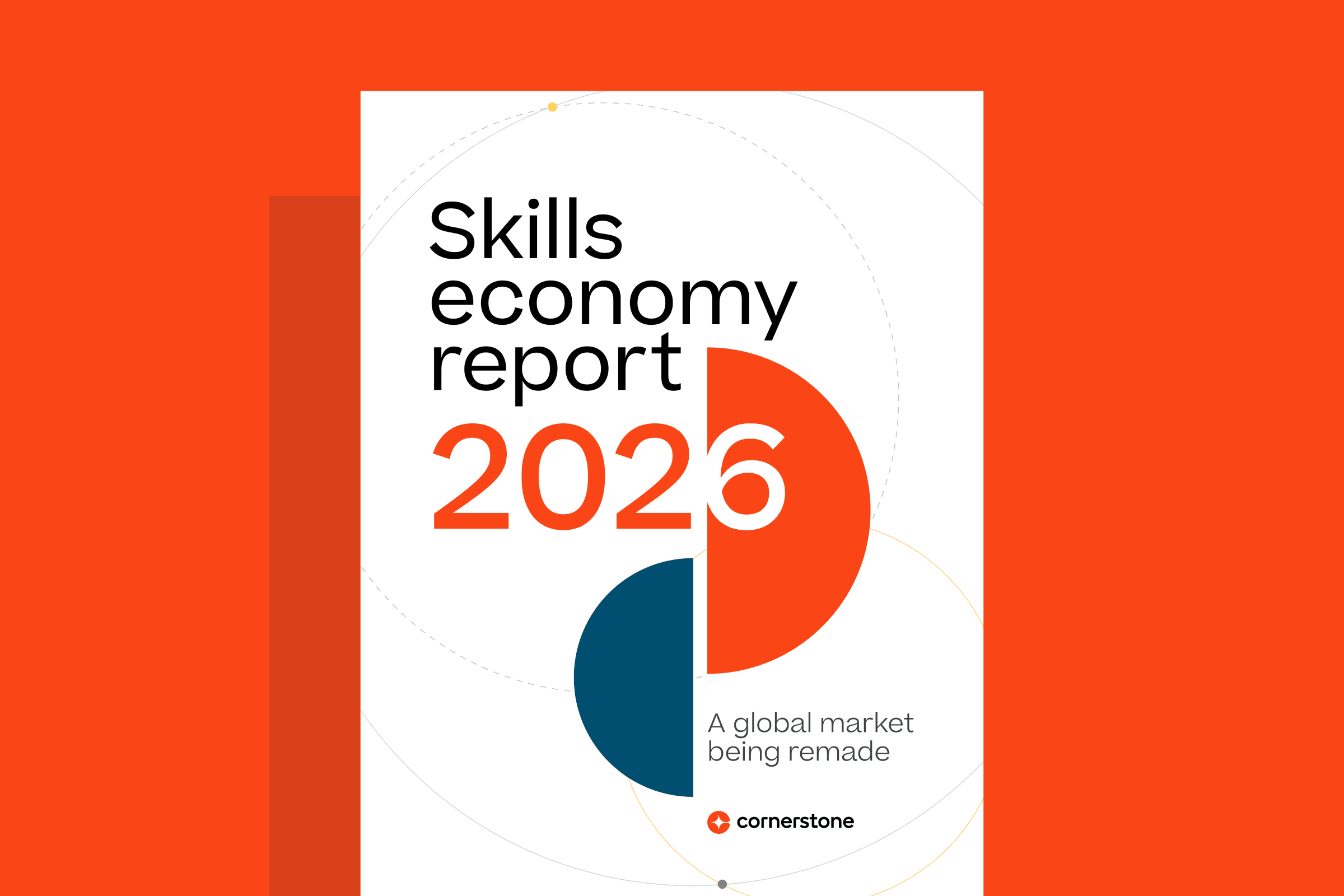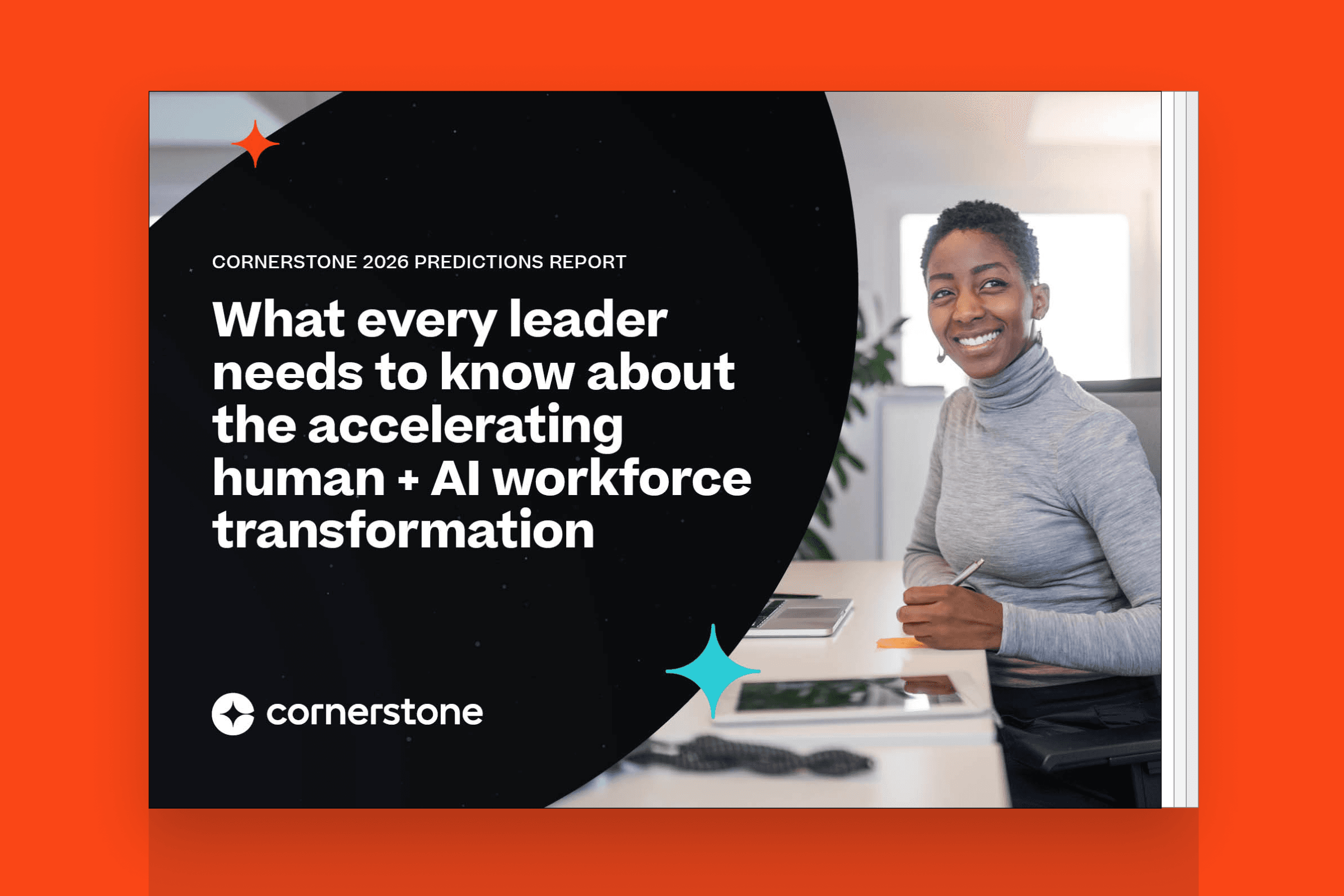As a Solution Consultant at Cornerstone onDemand, I am often asked to design solutions for our prospects, utilising our system capabilities to solve their business problems. Every business is different, and each requirement list reflects that company’s existing ecosystems, processes and culture. Each engagement is its own challenge and I love the thrill of creating a ‘just right’ solution for my customers.
Rarely will I get an opportunity for a carte blanche approach, an ‘art of the possible’, where I can showcase the full power of the Cornerstone technology arsenal and how it works together for greater value. In the context of these meetings, that value correlates to business impact, but I think we have much more to offer. I believe that Cornerstone can deliver a wider and more meaningful contribution to combating social inequality.
I realise that this is rather a large claim. As I watch the protests, riots and general social unrest on the news, it occurred to me that I wanted to share my vision of Cornerstone as an empowerment tool. A tool that supports businesses in the implementation and management of truly fair business practices.
What follows is my attempt of illustrating this point by analysing key Cornerstone components:
Cornerstone HR and Analytics
You can't change what you don't measure.
The truth is that diversity comes in many shapes and sizes. Thus, it is essential to collect and analyse reliable data in order to determine areas of focus to develop an inclusive workplace for all groups.
Cornerstone HR allows for companies to have a true understanding of the data within their talent landscape, via our user records and real-time reporting and analytics. D&I information can be utilised to draw attention to critical areas such as compensation spend, grade and recognition, amongst others. Effective dating and full audit trails support trending reports and comparative analytics, allowing companies a clear view of how successfully they are improving equality over time.
Recruiting
Data-driven recruiting is when you use tangible facts and stats to inform your hiring decisions, from selecting candidates to creating hiring plans.
“In the hiring process, unconscious bias happens when you form an opinion about candidates based solely on first impressions. In short, unconscious bias influences your decision – whether positively or negatively – using criteria irrelevant to the job.” (Sheerali Davda, Senior Talent Acquisition Partner, CSOD)
Cornerstone Recruiting enables you to anonymise the hiring process. Blind recruiting refers to the practice of removing identifying features from applications and CVs to allow for candidates to be evaluated based on equal criteria and stop unconscious bias becoming a factor in your selection process.
Prioritising a transparent internal talent mobility strategy is also essential to maintaining equality. This necessitates a move away from a traditional culture of manager-selected ‘high potentials’. Cornerstone's Predictive Succession allows for talent to be recognised based on empirical data gathered through the learning and performance processes, rather than relying on biased relationships and individual preferences to determine progression within the business.
Advertise jobs to all employees in our internal Career Centre and allow everyone the same opportunity to drive their own careers.
Recognition and Reward
A high-quality internal talent pool is the greatest indicator of corporate excellence in talent and development strategies. The key question here is how do we ensure that any evaluation of the quality of talent is consistent and fair? How do we remove preference from our assessments?
The answer must lie in gathering impartial data. Building objectives using tasks and targets, updated by key performance indicators, allows for a like-for-like comparison of achievement. Assessing goal progress via quantitative and not qualitative methods drives success through evidence and not opinion.
Where feedback is required for evaluation, ensure that this can be captured by diverse contributors and promote varied viewpoints. Informal feedback and 360 reviews consolidate feedback from multiple sources to ensure balance.
Build a culture of mentorship and continuous development, where the expectation must be for every employee to benefit from the experience of their managers and advisers. Check-ins promote ongoing support and operational guidance in the flow of our daily lives, helping to break down barriers of communication within teams.
Then by linking the output of an evidence-based performance process to your compensation management cycle, you have one of the most powerful methods of ensuring economic equality across your business. Cornerstone will automatically recommend merit increases and bonus awards based on each employee’s performance metrics vs. their compa-ratio. Simultaneously, this ensures consistency of salary rates for employees in equivalent positions and justifies the organisation’s allocations by awarding compensation in line with professional achievement. Simply put, Cornerstone is designed to achieve economic balance across your workforce.
Learning and Development
“If not me, then who? If not now, then when?” For employees, learning and development are the lynchpins of their empowerment. Giving everyone the opportunity to visualise a career path is powerful but providing the means to grow their knowledge and skill set is the true steppingstone to success.
Building tailored learning pathways and competency models to match job profiles will not just help workers better understand the knowledge required for their current position but demystify the path to progression, letting employees take the reins in their own career.
That does not mean to say that development should be unsupported. Cornerstone AI will make learning recommendations based on the employee’s profile and learning preferences. Our skills engine will match a job profile to our global taxonomy of skills, which can then be verified for each employee. Personalised additional skill suggestions will further drive learning recommendations, meaning that every single user has the opportunity to manage their own talent profiles and drive their readiness for growth.
Learning is a tool that enriches the individual but can also be applied to the betterment of the company collectively. “The first step towards change is awareness” (Nathaniel Branden, Psychologist) and that can only be attained through discussion and the sharing of ideas. Thoughtful and engaging content from Cornerstone’s catalogue, such as Janet Stovall’s Ted Talk ‘How to get serious about diversity and inclusion in the workplace’ or Microlearn’s ‘Unconscious Bias’ module, is a great way to get the conversation started. Providing a platform to share ideas and grow from each other’s experience is also critical to positively impact every organisation’s understanding of the challenges disproportionally faced by different groups within the workplace. All people share an appetite to learn and our own employees can be the richest source of knowledge and support.
Employees can find their own voices by creating and sharing content. The Create Tool can be used by anyone to simply tell their stories, published directly into the company’s content catalogue and contributing to the diversity of the company library. These can be discussed in Communities and marketed via playlists, ensuring the message is received and recognised across the business.
Cornerstone’s founder, Adam Miller, started the business with a mission to ‘educate the world’. After 20 years of development we have gone from being a first-class learning platform to a unified and egalitarian talent management tool. And this gives me so much hope. In today’s climate of protest and uprising I can see that our people, our employees, have the appetite for fairness and justice. There are tools out there like Cornerstone, that can harness the latest in Artificial Intelligence and best practice to deliver equality to ALL employees. When the investment in people follows the intention of the people, we have an out-of-the-box solution that will facilitate businesses to realise workplace equality.
I am proud of Cornerstone.


